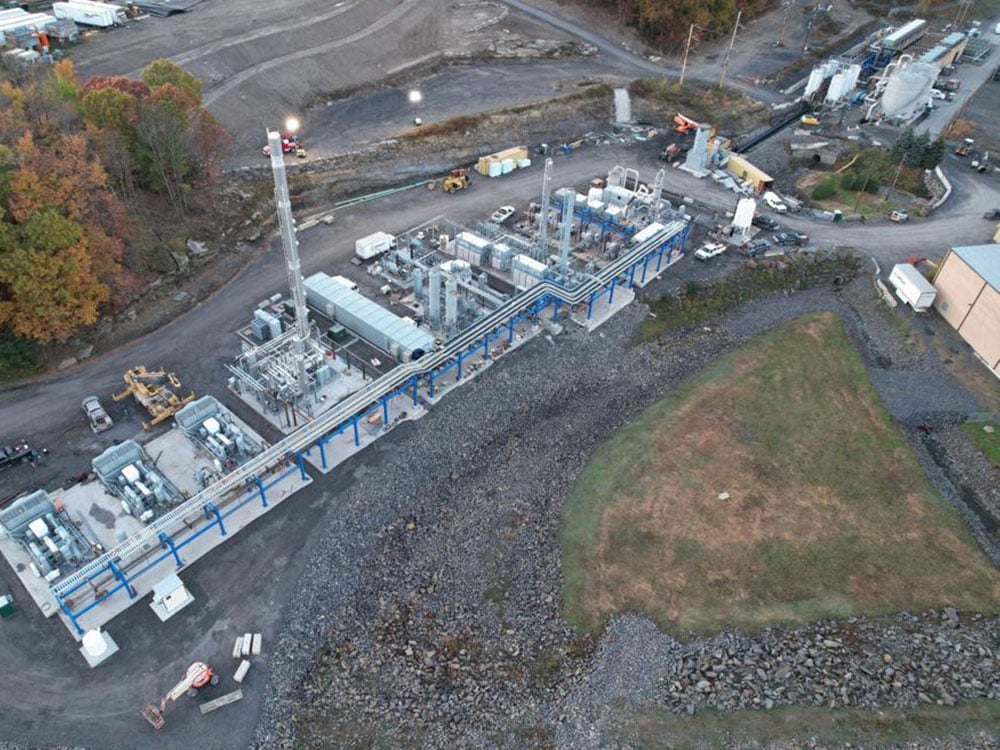The British Columbia Utilities Commission has rejected a FortisBC plan that would have seen the company’s existing customers paying to provide more expensive renewable natural gas in new buildings.
The decision means Fortis cannot designate new gas connections as coming 100 per cent from renewable sources of gas since “the BCUC found that it would result in undue price discrimination, in part because existing customers would be subsidizing new customers for the much higher costs of this service.”
Renewable natural gas, or RNG, consists primarily of methane captured and purified from landfills, dairy farms, sewage plants and other organic sources. It is much more expensive than conventional natural gas and is considered carbon neutral as it would still be released into the atmosphere even if it were never burned for energy.
In its application to the BCUC, FortisBC said its plan would help the company to meet the province’s targets for greenhouse gas emission reductions, balance supply and demand for RNG, enable compliance with incoming zero-carbon building regulations, and maintain energy choice for existing customers and new residential connections.
The BCUC ruled that FortisBC can continue to sell RNG to customers who choose it and who pay part of the added cost. The company can also blend RNG into the gas that it provides to all customers, making their RNG purchase mandatory.
It cannot, however, designate 100 per cent of new customers’ gas supply as RNG while spreading the cost of that program across all existing customers, the BCUC decided.
“They’ve made the right decisions as far as I’m concerned,” said Eoin Finn, director of research for the group My Sea to Sky and an intervenor in the BCUC review. “This is terrible news for Fortis, if you are a Fortis lover. I am not.”
FortisBC will have trouble meeting provincial climate targets without making its product too expensive for customers, Finn said. The province requires the company to cut greenhouse gas emissions in half by 2030 and cities are using the Zero Carbon Step Code and other building rules to discourage or ban all-fossil gas hookups.
The company’s proposal would have been a “clever” way around the requirements, said Finn, adding that part of FortisBC’s plan included RNG that it bought in other jurisdictions getting counted in B.C., even though that gas would never physically be in the province’s system.
“This is squirrely accounting and BCUC yesterday said we’re not having any of that,” Finn said.
A statement released Wednesday from FortisBC's vice-president of Indigenous relations and regulatory affairs, Doug Slater, said the company was pleased the BCUC had approved elements of its application, and that over time the company plans to increase the amount of RNG in the gas it supplies to customers. "We are reviewing these decisions and will provide an update in the coming weeks," he wrote.
The BCUC made the decision following a review process during which it heard from 24 intervenors, including many cities and environmental groups.
“The BCUC recognizes that there is a need for an orderly transition of B.C.’s energy system towards a net-zero carbon emissions future and measures will need to be taken to address the role of gas and protect FortisBC gas customers,” the regulator said Wednesday. “Further guidance and clarity on how this can be achieved may come from B.C. government policies or plans, or a BCUC inquiry.”
The BC Utilities Commission also released a separate decision Wednesday approving FortisBC’s long-term energy plan, which projects different scenarios detailing the company’s expected gas demand into the future. Despite its approval, the regulator stated that the company’s next plan, due in 2026, would need more details on how it plans to meet B.C.’s climate targets.
The commission rejected FortisBC’s plan to reduce emissions through liquefied natural gas investments due to uncertainty in the LNG market. “The BCUC was unable to determine whether pursuing sales or infrastructure investments in LNG would be beneficial to FortisBC customers or in the public interest,” it said.
The BCUC’s role includes regulating energy utilities in the province. Its mandate includes balancing the interests of ratepayers and other stakeholders against those of the businesses it regulates.
With files from Zoë Yunker. ![]()
Read more: Energy, BC Politics, Environment

















Tyee Commenting Guidelines
Comments that violate guidelines risk being deleted, and violations may result in a temporary or permanent user ban. Maintain the spirit of good conversation to stay in the discussion and be patient with moderators. Comments are reviewed regularly but not in real time.
Do:
Do not: